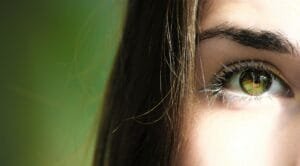Managing your vision during hay fever season
The warmer weather gives us the perfect excuse to get out of the office and enjoy the great outdoors – but for some people, this can be a mixed blessing. For those with hay fever symptoms, venturing outside when the pollen count is high (between March and September) paves the way for weeks of potential discomfort.
What is hay fever?
Hay fever is an allergy to pollen and dust which affects the nose and eyes. While not strictly hereditary, it can run in the family if at least one parent suffers. It currently affects around 13 million people in the UK and can develop at any age, though the first symptoms usually appear in childhood.
Many factors can influence whether or not a person is likely to succumb to hay fever; for example, babies born during spring months may have a higher susceptibility to symptoms. There is no cure for hay fever, but sufferers can take measures to relieve the symptoms and lessen the likelihood of reactions.
How does hay fever affect the eyes?
Along with unpleasant symptoms such as sneezing, coughing and head or earaches, hay fever can also give sufferers itchy, red or watery eyes. These symptoms can last for weeks at a time, which is why it is important to take the following precautions:
- Stay indoors during high pollen days ( you can check the pollen count at any good weather forecast network )
- Shower and change clothes after going outside
- Take anti-histamines or anti-allergenic nose sprays and eye drops
- Vacuum and dust regularly using a damp cloth
- Buy a pollen filter for the vents of your car
- Line the bottom of your nostrils with a thin layer of petroleum jelly to catch pollen
Hay fever in glasses wearers
If you wear contact lenses, sunglasses can help to protect your eyes from pollen, or you can purchase reactive eyeglasses which change colour depending on the light conditions. A wraparound style is the best for keeping pollen away in sunny weather.
There are now even sunglasses available that have been designed specifically for hay fever sufferers – large, wraparound shades with removable gaskets to make them as accessible as possible.
Managing hay fever with contact lenses
If you wear both glasses and contact lenses, the latter can exacerbate the symptoms. Vision may become smeary and less ‘sharp’ if you wear lenses during high pollen seasons. To help you feel most comfortable during this time, ask your optician about daily disposables – it is good to have some of these as back-ups if you wear monthlies.
You should also invest in contact lens-friendly eye drops to manage itchiness, though the best way to keep your eyes comfortable during the highest pollen days is to switch to glasses.
Signs to watch out for
The good news is, hay fever does not last forever and can be managed easily with over-the-counter medicine and good practices such as driving with the windows up. However, if you experience any of the following, consider seeing your doctor:
- Continued itchiness and redness after taking antihistamines
- Achy, irritated eyes, which may be a sign of something more serious.
Summer should be an enjoyable time for all, regardless of allergies. By managing the symptoms of hay fever and applying these hacks for glasses wearers, you can keep comfort and disruption to a minimum.
For more information, speak to one of the team today.



